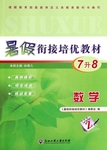题目内容
Thomas Alva Edison (爱迪生)was awarded more patents(专利) on inventions than any other American. When he died in 1931, Americans wondered how they could best show their respect for him. One suggestion was that the nation observe a minute or two of total blackout(关闭,中断). All electric power(电源) would be shut off in homes, streets, and factories. Perhaps his suggested plan made Americans realize fully what Edison and his inventions mean to them. Electric power was too important to the country. Shutting it off for even a short time would have led to complete confusion(混乱). A blackout was out of the question.
On the day of Edison’s funeral (葬礼),many people silently dimmed(使暗淡) their lights. In this way they honoured the man who had done more than anyone else to the great force of electrity
63. This says that Thomas Edison __________.
A. was the only important American inventor
B. received the first American patent
C. received more patents than any other American
D. was the first American inventor
64. People decided to honor Edison when ________.
A. he made the first electric light B. electric power was 100 years
C. the country realized electricity’s importance D. he died in 1931
65. The suggested plan was to _________.
A. turn off the lights in factories B. observe a few minutes of total silence
C. dim all electric lights D. shut off all electricity for a short time
66. The plan was never carried out because________.
A. not everyone wanted to honor Edison B. it was too difficult
C .electric power was too important to the country
D. it honored only one of Edison’s inventions
CDDC

 暑假衔接培优教材浙江工商大学出版社系列答案
暑假衔接培优教材浙江工商大学出版社系列答案 欣语文化快乐暑假沈阳出版社系列答案
欣语文化快乐暑假沈阳出版社系列答案Thomas Alva Edison was awarded more patents on inventions than any other American. When he died in 1931, Americans wondered how they could best show their respect for him. One suggestion was that the nation observe a minute or two of total blackout. All electric power would be shut off in homes, streets, and factories. Perhaps this suggested plan made Americans realize fully what Edison and his inventions mean to them. Electric power was too important to the country. Shutting it off for even a short time would have led to complete confusion. A blackout was impossible.
On the day of Edison's funeral, many people silently dimmed their lights. In this way they honored the man who had done more than anyone else to put the great force of electricity at his countrymen's fingertips.
【小题1】This selection says that Thomas Edison ________.
| A.was the only important American inventor |
| B.received the first American patent |
| C.received more patents than any other American |
| D.was the first American inventor |
| A.he made the first electric light |
| B.electric power was 100 years |
| C.the country realized electricity's importance |
| D.he died in 1931 |
| A.turn off the lights in factories and schools |
| B.observe a few minutes of total silence |
| C.dim all electric lights |
| D.shut off all electricity for a short time |
Thomas Alva Edison was awarded more patents on inventions than any other American. When he died in 1931, Americans wondered how they could best show their respect for him. One suggestion was that the nation observe a minute or two of total blackout. All electric power would be shut off in homes, streets, and factories. Perhaps this suggested plan made Americans realize fully what Edison and his inventions mean to them. Electric power was too important to the country. Shutting it off for even a short time would have led to complete confusion. A blackout was impossible.
On the day of Edison's funeral, many people silently dimmed their lights. In this way they honored the man who had done more than anyone else to put the great force of electricity at his countrymen's fingertips.
1.This selection says that Thomas Edison ________.
|
A.was the only important American inventor |
|
B.received the first American patent |
|
C.received more patents than any other American |
|
D.was the first American inventor |
2.People decided to honor Edison when ________.
|
A.he made the first electric light |
|
B.electric power was 100 years |
|
C.the country realized electricity's importance |
|
D.he died in 1931 |
3.The suggested plan was to ________.
|
A.turn off the lights in factories and schools |
|
B.observe a few minutes of total silence |
|
C.dim all electric lights |
|
D.shut off all electricity for a short time |
Thomas Alva Edison was an American inventor, scientist and businessman who invented many things that greatly influenced life around the world, such as the phonograph, the motion picture camera, and a long-lasting, practical electric light bulb. Edison has been recognized as the creator of the first industrial research laboratory. It is he who came up with the concept of providing electricity for home. His first power station was on Manhattan Island, New York.
Edison was born in Milan, Ohio, and grew up in Port Huron, Michigan. He was the seventh and last child of his family. When he was young, Edison stayed at home and was taught by his mother. Edison recalled later, “My mother was the making of me. She was so true, so sure of me; and I felt I had someone to live for, someone I must not disappoint.” During his childhood, he suffered from scarlet fever which affected his hearing.
Young Edison sold candy and newspapers on trains running from Port Huron to Detroit, and he sold vegetables to supplement his income. These jobs, though insignificant, inspired him greatly. He realized that he had a talent for business. These talents eventually made him founder of 14 companies, including General Electric, which is still in existence and is the largest publicly traded company in the world.
Edison started as a telegraph operator and this was the field in which he came up with the first invention. The invention which first gained him fame was the phonograph in 1877. The invention seemed magical, as nothing similar had ever been thought of before. Funded by the successful sale of the telegraph at a price of $10,000, Edison built his own research laboratory in Menlo Park, New Jersey.
The laboratory expanded rapidly over the decade. In 1892, it was confirmed that Edison was the official inventor of the carbon microphones, which was used in all telephones. Although he attempted to make use of X-rays to take radiographs, he quit the project and admitted his fear of X-rays in public.
Thomas Edison died of diabetes at his home in New Jersey, on October 18, 1931 and in honor of his contributions, Life magazine (USA), in a special double issue in 1997, placed Edison first in the list of the “100 Most Important People in the Last 1000 Years”, noting that the light bulb he promoted “lit up the world”.
Title: Thomas Edison—an influential person in the American history
|
Edison’s __71__ to society |
◆ He invented many things that greatly influenced life around the world, _72__ the phonograph, the motion picture camera, a long-lasting, practical electric light bulb and the carbon microphone. ◆ He set up the first industrial _73__ laboratory. ◆ He put __74__ the concept of providing electricity for home. ◆ He __75__ 14 companies, including General Electric, which is still in existence and is the largest publicly traded company in the world. |
|
The life experience of Edison |
◆ He was born in Milan and was the youngest of seven children in his family. ◆ _76_ of receiving schooling, Edison was taught by his mother at home. ◆ The scarlet fever he suffered _77_ to hearing loss. ◆ To earn a living, Edison sold newspapers, candy and vegetables, which __78__ him and helped him discover his talent for business. ◆ Later, he worked in the field of telecommunication as an telegraph operator, where he invented phonograph in 1877, which gained him great fame. ◆ After he created his research laboratory, he __79__ up the project of making use of X-rays to take radiographs due to his fear of radiation. ◆ He died of diabetes at his home in New Jersey in 1931. |
|
The honor given to Edison |
◆ He was placed first in the list of the “100 Most __80__ People in the Last 1000 Years”, noting that the light bulb he promoted “lit up the world”. |